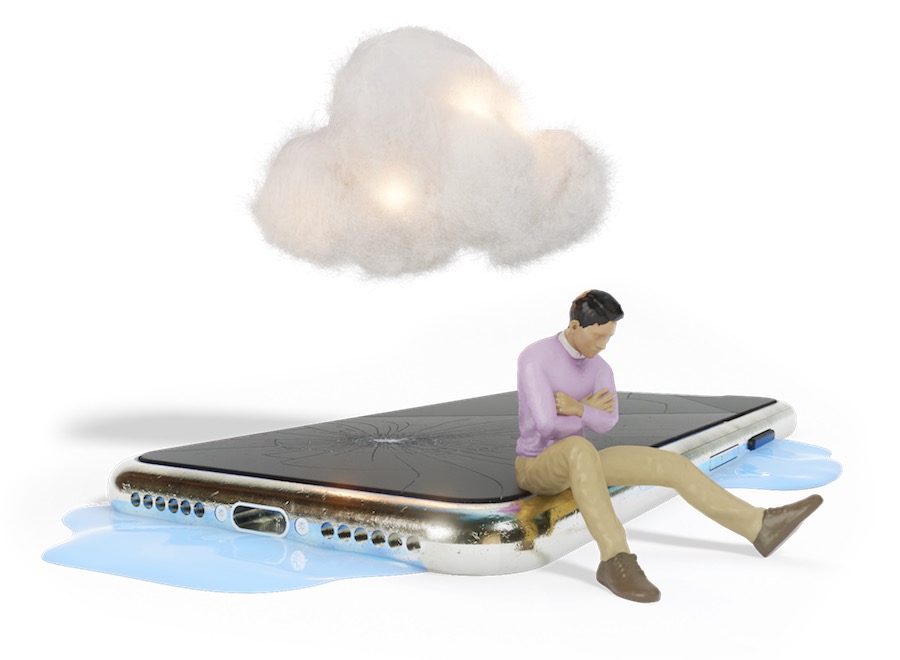Fines can seem overwhelming, especially if you are already under financial stress.
Fines can happen to anybody, but not having enough money to pay for essentials like public transport fares can mean that people are more exposed to the risk of fines. Receiving a fine or penalty means that you’re accused of breaking a regulation or law and the penalty is to pay a sum of money.
Fines for offences like speeding or riding public transport without a ticket are given out at set amounts, regardless of a person’s circumstances. This means that for someone on a low income, fines can end up being quite a large portion of the money they earn.
There are several ways to either pay or dispute a fine, which we’ll explain below. But the first thing to remember is that there is always help available to you.

Types of fines
We’ll start with the basics. There are two different types of fines that we’ll be talking about in this article – infringement fines and court fines.
Infringement fines
- issued by enforcement agencies like police, ticket inspectors, parking inspectors, and others when they believe someone has broken the law
- can be paid without any further legal processes like going to court
Court fines
- imposed by a judge or magistrate at court as a penalty
- imposed only after someone has been proven guilty in court and been issued the fine as a penalty for breaking the law
Did you know?
You may not know that you have a fine until you receive an infringement notice in the post.
What happens if you don’t pay?
If you don’t pay an infringement or court fine, payment in one form or another can be taken from you in other ways. For example:
- seizure of your property
- additional fines
- in some cases, jail time.
The good news is that there are steps you may be able to take to resolve fines long before measures to take payment from you become a possibility. Keep reading to learn more about the options available to you.
What to do when you get a fine?
Getting a fine can feel like you’re trapped. Especially if you’ve been handed a fine in person, for example, by a transport ticket inspector.
If you’re face-to-face with a person issuing you a fine, remain calm so the situation doesn’t get any worse. Remember too that you have time to consider your options before paying. You have legal rights and it may be possible to fix your situation.
Actions you can take
After receiving a fine you may be able to take steps to contest your fine or change its payment terms. Consider the path that feels best for your individual circumstances.
- contest the fine or its enforcement – this might involve a request to review the fine or a challenge in court.
- get legal advice – Legal advice can be particularly useful if you wish to challenge the fine in court. See our free legal services page.
- Ask for financial assistance – if you think that you’ll struggle to pay, start with one or more of the following:
- Contact a financial counsellor at the National Debt Helpline on 1800 007 007
- Ask for an extension
- Ask for a payment plan
- Apply for special consideration
- Ask for a reduction in your fine due to financial hardship
Where to find information
Be sure to know your rights up front by learning about how the related laws work in your state or territory (they vary, so it’s important not to make any assumptions).
| Location | Resource |
| Australian Capital Territory | Traffic and parking infringements Access Canberra |
| Fines Canberra Community Law | |
| New South Wales | Financial support for paying and resolving fines NSW Government |
| Personalised list of potential fine solutions Finefixer | |
| Northern Territory | Legal process for dealing with fines NT Government |
| Legal services in the NT Law Society NT | |
| South Australia | Fines SA SA Government |
| Support services SA Government | |
| Queensland | Fines and penalties QLD Government |
| Victoria | Support Fines Victoria |
| Fines and infringements Victoria Legal Aid | |
| Personalised list of potential fine solutions Finefixer | |
| Western Australia | Fines Legal Aid WA |
Income support and Centrepay
If you receive income support, you can choose to use Centrepay to directly pay your fine from your support payment. The service is entirely voluntary and has a certain level of flexibility – you can choose which payments the deduction comes from, how much you want to pay, and to whom you want to pay.
This information was last updated on 5 June 2023.
The links and resources in this article have been compiled and reviewed by the Brotherhood of St. Laurence. We aren’t responsible for what you’ll find at the links, though we do hope you find the information useful. See our disclaimer if you’d like to know more.
Want to save this article as a PDF? See how to here.
📌 See more:
Managing bills and negotiating